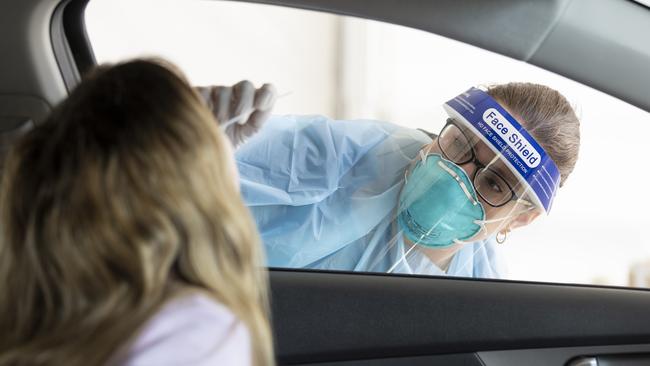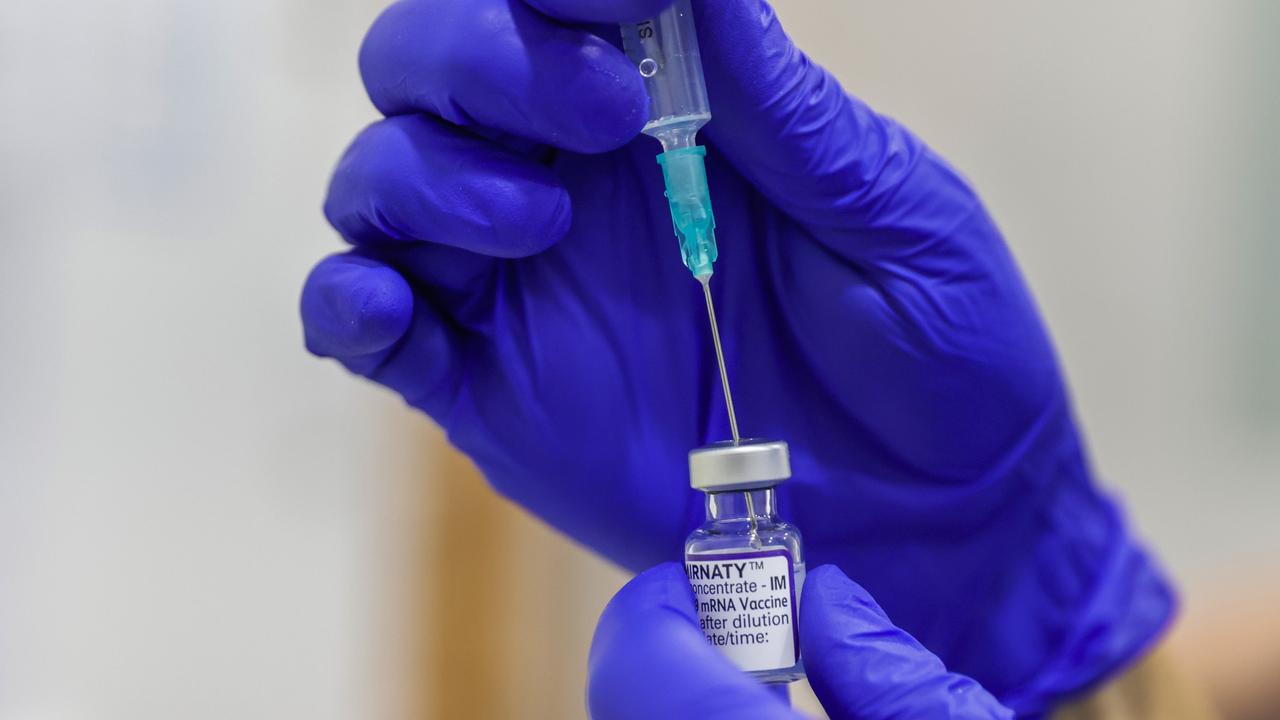NSW COVID: The truth about the dreaded Delta variant’s danger
Yes, it spreads much more easily — but experts say that the new coronavirus variant appears to also be much less deadly. Find out why.
NSW Coronavirus News
Don't miss out on the headlines from NSW Coronavirus News. Followed categories will be added to My News.
The much-feared Delta variant that has sent health officials in several states scrambling to impose a lockdown may be more easily transmissible but also looks to be far less dangerous, largely because it tends to infect young people who are on average far better at fighting off Covid than the elderly.
However, experts say that even with cases appearing in local schools, it will be a long time before we have the data to support vaccinating under-18s.
Data coming out of the United Kingdom, where around two-thirds of the adult population have had at least one dose of a coronavirus vaccine, suggests that even if the Delta variant does spread more easily, it is also less dangerous.

“The Delta variant is clearly more infectious, around double compared to the original variant,” says Kirby Institute program head Prof Gregory Dore.
“(But) there is no evidence the Delta variant is more virulent than other variants. In fact, data from the UK shows the death rate from Alpha (original) variant is 2% compared to 0.3% for the Delta variant,” he says, referring to data released earlier this month by Public Health England.
Infectious diseases specialist and professor of microbiology at ANU Peter Collignon agrees, but cautions that the age groups affected by the Delta variant may be what is behind the numbers.

“My own view is that the Delta strain does spread more quickly, but there is no evidence that it causes more severe illness. In fact, the evidence is that it may cause less,” he says.
Prof Collignon suggests that this may be because young people are catching the Delta variant more and thus skewing the numbers, or simply because the virus is mutating to cause less severe illness.
“In some ways it is in a virus’s interest to spread more but cause less disease,” he says.
“If you’re a virus, you want to survive and you do that by spreading but not killing too many people.”
Either way, data from England also suggests that the vaccines are doing their job at fighting off the Delta variant.
There, recent analysis suggests that two doses of the Pfizer vaccine remain 96 per cent effective against hospitalisation in those who do still catch the Delta variant versus no vaccine, while those who have had both shots of the AstraZeneca vaccine get in the order of 92 per cent protection against hospitalisation versus no vaccine.

And despite a dramatic uptick of new cases, to an average of more than 12,000 per day mostly of the Delta variety, coronavirus deaths in the increasingly vaccinated UK have flatlined at around a little more than a dozen per day.
Prof Collignon also says that given what we know about the coronavirus, there is little benefit to be gained from vaccinating under-18s, despite recent high profile school cases, because even if infected young people have the least risk of severe symptoms or death.
“The biggest gain from vaccinations comes in the over 50s, who suffer 99 per cent of the deaths” he says.
“There’s not enough benefit and we don’t have the data on the vaccines to justify vaccinating young people.”
“Children have the least amount of complications from Covid and you really need to do long-term studies. I don’t think mass vaccination of children is on the cards for at least a year or more.”




